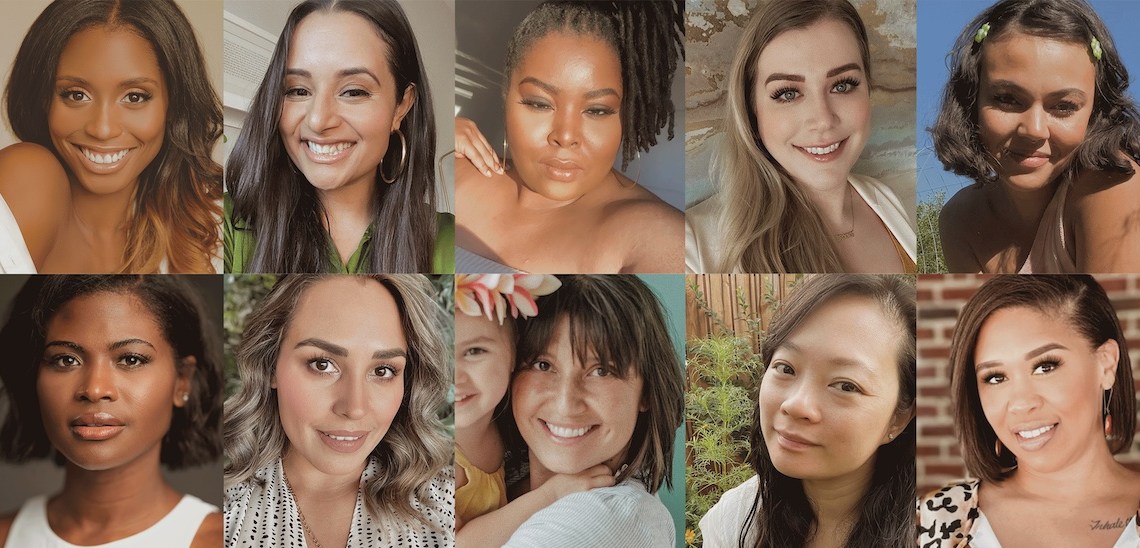To remain relevant as a legacy beauty brand, Clinique knows it has to get with the times. With that in mind, the Estée Lauder Companies-owned brand created a program called Co-Lab where it could directly engage with a set of customers to understand their modern values and perspectives.
Co-Lab originated in 2020, with Clinique bringing together 51 paid consumer participants in Oct. 2020 to kick off the program. Participants were grouped into four cohorts and participated via surveys and virtual discussions over three months. In February 2022, to coincide with Black History Month, Clinique shared the results of Co-Lab including photos of the 51 women, their self-directed and -created video diaries, and Clinique’s plan for using Co-Lab feedback in its campaigns. Clinique waited until it had results to share before publicly promoting its effort. And until now, Clinique has not detailed the formation and impact of Co-Lab.
“Looking back at 2020, everything was happening from a cultural standpoint. We were making a lot of big commitments, but we wanted to do more than donations,” said Sameer Agarwal, vp of marketing for Clinique North America. “As one of the largest and oldest beauty brands, we wanted to lead by example but also with humility.”
Agarwal said Clinique decided to connect one-on-one with a group of women to understand how people felt about beauty, the beauty industry and Clinique itself. It wanted to then use that information to direct the future of the brand. Participants were sourced by the media agency B&A, which Clinique previously worked with in 2019 on a separate consumer research initiative. Clinique also promoted the Co-Lab initiative through its owned social channels and directed people to a landing page website to sign up. Clinique was looking for an ethnically and racially diverse set of consumers from all age groups who represented “a slice of America,” said Agarwal.
Sessions were hosted virtually over four-hour periods and included a mix of moderated sessions. led by a representative from B&A; self-directed video diaries; and group discussions with Agarwal and other Clinique executives present. Agarwal said Clinique wanted Co-Lab to be an introspective exercise and that when he or other executives sat in on virtual sessions, they were there only to listen rather than participate in a two-way dialogue. Discussions centered on what beauty means to participants, on an individual level; where the beauty industry has fallen short of expectations and what people want to see from Clinique.
One major theme that emerged was the need for both the beauty industry and Clinique to broaden the scope of representation beyond skin tone and race, he said. This includes showing different ages, pregnant people and people with disabilities and special needs in marketing materials. The conversations and findings have played a role in Clinique’s subsequent advertising and marketing. Clinique’s Instagram and other social media channels have become more inclusive. For example, in Aug. 2021, Clinique had an Ulta Beauty-at-Target campaign featuring a woman with special needs. Agarwal said Clinique is continuing to think about how to use Co-Lab insights across creative concepts and product development.
“A lot of the women spoke about how beauty [norms] have shaped them, for better or for worse, as well as what they’re hopeful for from the beauty industry,” said Maiah Martin, executive director of client engagement at Clinique North America. “Many women said they compare themselves to [beauty ideals], and comparison is often the robber of joy. By understanding that, we know more about the need to [spotlight] diversity in hair type, body size, gender, et cetera.”
Ad position: web_incontent_pos1
Being a brand with products that address customer needs while taking a laissez-faire stance on directing the beauty narrative is a hard balance to strike. Most beauty products, by definition, are meant to enhance, correct, prevent or otherwise provide a solution. And pushing an aspirational beauty standard to customers is still a major underpinning of what drives sales. Yet, brands like Clinique can no longer direct the conversation around what beauty is or who is beautiful.
“Women don’t want to be told what beauty is. They want to be empowered to find their beauty,” said Agarwal. “Our job is to do that and to communicate [about our products] effectively, but to also show that it’s for real people. That is a shift from 30 years ago where we only [advertised] in select publications and were the definers of beauty, versus empowering anyone to choose us and telling them why they should.”
Clinique is looking to replicate Co-Lab again in the future, either with the same cohort of women or with new and additional participants. Martin said another idea is to create an advisory board so Clinique can meet with a select group of women multiple times a year for conversations and get their feedback on new products and campaigns.
“We know there is still so far to go with these discussions and, with what we saw coming out of 2020 and the change in the country, it’s important to be able to reach out to people and [go beyond] just making donations,” said Martin. “It allows people to feel connected to the brand. Driving that connective tissue is important to us and how we engage with consumers.”




